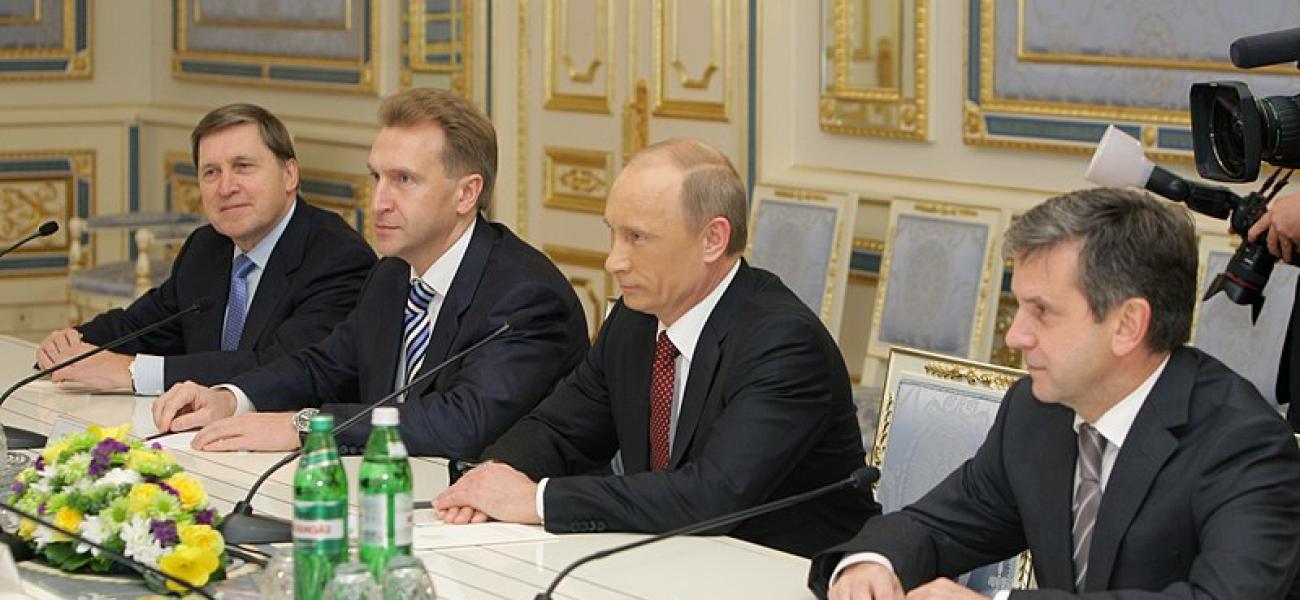
The Putin Doctrine: A Move on Ukraine Has Always Been Part of the Plan
This is a summary of an article originally published by Foreign Affairs.
The author, a nonresident senior fellow at the Brookings Institution, writes that Russian President Vladimir Putin’s actions amid the current Russia-Ukraine crisis track with what she refers to as “the Putin doctrine,” which involves “reversing the consequences of the Soviet collapse, splitting the transatlantic alliance and renegotiating the geographic settlement that ended the Cold War.” Additionally, the Putin doctrine would have the West “treat Russia as if it were the Soviet Union” and would “entail [Russia] defending incumbent authoritarian regimes and undermining democracies.” In light of these central tenets, the author writes that it is unclear whether Putin will decide to invade Ukraine and, if he does, whether he can be deterred. The author argues that this “doesn’t mean that the West is powerless,” and that it should “continue to pursue diplomacy with Russia” and “keep coordinating with the Europeans to respond to and impose costs on Russia,” stressing that it is important for the United States and its allies to “understand Putin’s motives and what they portend.”
Read the full article at Foreign Affairs.
Angela Stent
Angela Stent is a nonresident senior fellow at the Brookings Institution and a former U.S. national intelligence officer for Russia and Eurasia.
The opinions expressed herein are solely those of the author. Photo by Premier.gov.ru shared under a Creative Commons license.

